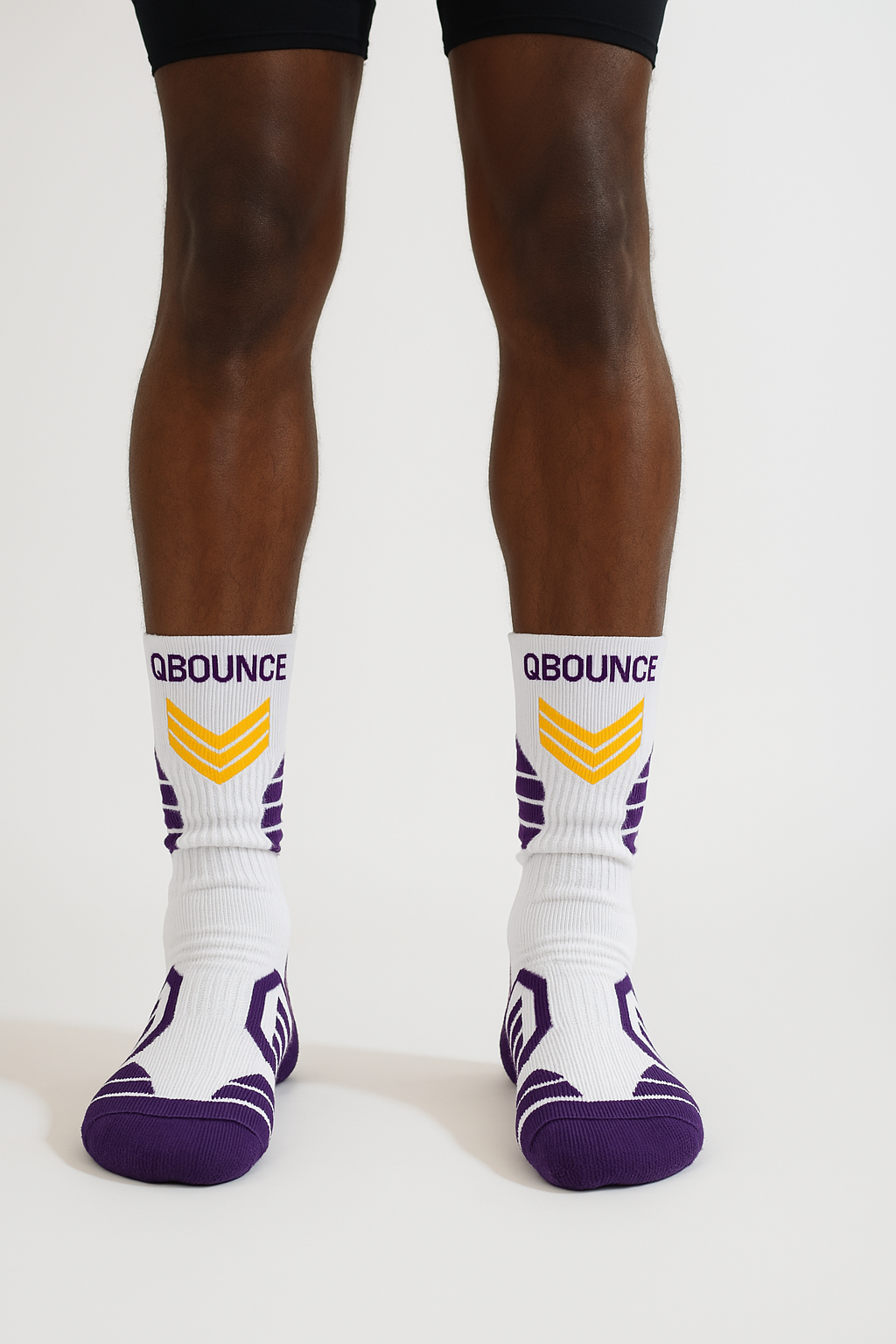
How to Make Your High School Basketball Team
Share
You’ve been dreaming about making your school’s basketball team, and know you have what it takes. But how do you prove it to the coaches?
We’re here to help. We’ve read countless articles about improving your basketball game and combined the most often repeated advice. From hustling on every play to developing your basketball IQ, here are the strategies other players and coaches encourage you to try.
Grab some friends, head to the courts, or run drills on your driveway. Even if you have to practice in your bedroom (yes, silent basketballs are a thing) between homework assignments, consistency will boost your technique and confidence. Give these tips a shot.
Hustle on Every Play
Coaches always look for players who give their all and never give up. Hustling indicates your dedication and commitment.
- Sprint the floor: Sprint up and down the court during games and practices. This demonstrates your speed, stamina, and willingness to contribute on offense and defense.
- Dive for loose balls: Coaches appreciate players who aren't afraid to get dirty and do whatever it takes to gain possession.
- Crash the boards: Hustle to the boards, box out opponents, and fight for every rebound opportunity.
- Apply defensive pressure: Work hard to stay in front of your man, contest shots, and disrupt passing lanes. Coaches value players who bring energy and intensity to the defensive end.
- Never give up on a play: Whether chasing down a fast break, recovering after a missed shot, or making a last-ditch effort to save the ball from going out of bounds, always give your best until the whistle blows.
Be Vocal & Communicate
Effective communication can significantly enhance your team’s chemistry, coordination, and overall performance.
- Communicate clearly & directly: Use verbal cues to inform your teammates about open players, defensive assignments, and potential plays.
- Call for the ball: Don't be shy about calling for the ball when you are open and ready to receive a pass. Raise your hand or call out your teammate's name. This demonstrates your confidence and proactive approach to the game.
- Be active: Listen to your teammates' instructions, feedback, and suggestions. This shows respect for your teammates' input and contributes to a more collaborative team dynamic.
Be Coachable
Being coachable shows your willingness to learn, adapt, and improve.
- Pay attention: Focus entirely during team meetings, practices, and games. Show respect by maintaining eye contact and nodding to indicate your understanding.
- Accept constructive criticism: Coaches will provide feedback to help you grow as a player. Avoid becoming defensive or taking feedback personally. Instead, view it as an opportunity to identify areas for improvement.
- Implement feedback: Apply the suggested adjustments to your game and show that you are actively improving your skills and performance. Coaches appreciate players who are willing to make changes and adapt.
- Ask questions: Don't be afraid to seek clarification when you don't fully understand something. This shows your commitment to learning and demonstrates your eagerness to improve.
- Show respect: Respect your coach, teammates, and the team's rules and guidelines. Be punctual, attend all team activities, and follow instructions promptly.
Play Confidently
Playing confidently showcases your skills and demonstrates your ability to handle pressure and perform at your best.
- Know your strengths: Whether it's your shooting, dribbling, or defense, focus on showcasing your best skills during games and practices.
- Visualize success: Before games or practices, take a few moments to visualize yourself making successful plays, scoring points, and contributing to the team's success. This can help build your confidence and mental preparedness.
- Practice, practice, practice: Dedicate time to hone your basketball skills through individual workouts at home, team practices, and game simulations. The more comfortable you become with your abilities, the more confident you will be when performing.
- Stay positive: Avoid dwelling on mistakes or missed opportunities. Instead, focus on the present moment and look for opportunities to impact positively. Use setbacks as motivation to improve.
- Take risks: Playing it safe won't help you stand out. Take calculated risks, step out of your comfort zone, and embrace challenges on the court. Feel free to try new moves, take open shots, or make aggressive defensive plays.
Show Up Early & Stay Late
Showing up early to practice and staying late demonstrates a strong work ethic and passion for the game.
- Arrive early: Give yourself the time to mentally prepare, warm up, and get into the right mindset before the team activities begin. This shows your commitment to the team and allows you to build rapport with your coaches and teammates.
- Warm up properly: Engage in dynamic stretching, agility drills, and shooting exercises to prepare your muscles for the physical demands of the practice session. This will help you maximize your practice time.
- Stay late for extra work: Consider working on specific skills, such as shooting or dribbling drills after practice. Coaches appreciate players who go the extra mile.
- Seek individual feedback: Ask your coaches about specific areas of improvement, seek clarification on techniques, or discuss strategies to enhance your game.
- Be a role model: By consistently showing up early and staying late, you set a positive example for your teammates. This improves team dynamics and increases your value as a player in the eyes of the coaching staff.
Show Physical & Mental Toughness
Demonstrating physical and mental toughness reflects your ability to handle the game's physical demands, overcome challenges, and perform at your best, even under pressure.
- Develop your endurance: Engage in regular strength training exercises to build muscle and improve your overall physical fitness. Additionally, incorporate cardiovascular exercises and conditioning drills to enhance your endurance on the court.
- Play aggressively: Attack the basket and assert yourself on the defensive end. Aggressive play shows your opponents and coaches that you are not easily intimidated and can handle the physicality of the game.
- Bounce back from setbacks: Basketball is a sport of ups and downs. Don't let mistakes or failures define you. Instead, use them as learning opportunities and motivation to improve.
- Stay composed under pressure: It's crucial to remain composed and make sound decisions in high-pressure situations. Work on maintaining a calm and confident demeanor, even in intense game situations.
Be a Team Player
Being a team player is fundamental to making your middle or high school basketball team. It involves putting the team's goals and success above individual achievements and working collaboratively with teammates. Here are some key points to consider:
- Accept your role: Whether it's being a scorer, a defensive anchor, a playmaker, or a bench player, embrace the role the coach assigns to you. Trust that the coach has made the decision that best serves the team's objectives.
- Commit to the team’s goals: Prioritize the team's goals over your achievements. Commit to the team's strategies, game plans, and objectives.
- Be a reliable teammate: Show up to practices and games on time, give your best effort, and consistently execute your assigned tasks.
- Support your teammates: Celebrate your teammates’ successes, offer a helping hand when they struggle, and provide positive feedback.
- Share the ball: Look for opportunities to pass to open teammates, make intelligent decisions with the ball, and avoid selfish play.
By incorporating these tips into your games and practices, you will impress the coaches and grow as a player. Be proud of yourself for putting in so much hard work, no matter the outcome. Your love for the game will surely shine through as long as you play with determination, heart, and confidence. Good luck!




